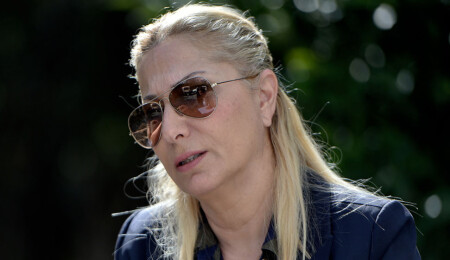Prof. Şerife Gündüz: Anticipated 15% Decrease in Rainfall Between 2020 and 2050

According to Professor Dr. Şerife Gündüz, Director of the UFU Environmental Research Center, with the current rainfall patterns, a 10-15% decrease in rainfall is expected in Cyprus between 2020 and 2050.

Speaking to Kıbrıs Postası, she emphasized the necessity of taking measures to sustain life in Northern Cyprus with the existing water resources and highlighted the importance of efficient water usage and ensuring that every drop of rain reaches underground.
Professor Dr. Gündüz pointed out that due to its location in the Eastern Mediterranean and the Middle East, Cyprus is susceptible to climate change. She stated, "The Eastern Mediterranean and Mediterranean countries are facing an average temperature increase, indicating that temperatures will continue to rise in the future."
Highlighting the prevalence of hot weather conditions in response to rising temperatures, Gündüz noted that the summer of 2023 was recorded as the hottest summer period to date. She explained that a 1.5-degree increase in average temperature translates to a 2-degree increase in summer and 1-degree increase in winter, predicting that warmer temperatures will lead to more frequent and intense heatwaves, posing risks to public health, agriculture, and water resources.
With the current rainfall patterns, Gündüz mentioned an anticipated 10-15% decrease in rainfall between 2020 and 2050 in Cyprus, primarily occurring during the already arid spring and summer periods.
Additionally, she highlighted the potential for significant desertification risks, with scientific reports indicating that approximately 57% of Cyprus is vulnerable to desertification, and irreversible effects are being experienced on around 7% of the land. She warned that desertification risks are projected to increase to 72% by 2050.
Gündüz emphasized the socio-economic impacts of floods, stating that losses due to flood-related events are increasing due to heightened risks and vulnerabilities. She stressed the seriousness of the increasing variability in flood frequency.
Referring to the frequent forest fires in recent years, Gündüz underscored the heightened risk of wildfires due to drought, desertification, and extreme heat, causing irreversible damage to the economy and environment.
Citing a United Nations report, Gündüz stated that the concentration of greenhouse gases (GHGs) has led to significant increases in climate change risks related to freshwater resources.
Gündüz urged governments and societies to acknowledge the urgent need for action in this crucial area, stating, "Hence, governments and societies must acknowledge the need for urgent action on this critical issue." She emphasized that one of the most pronounced impacts of the climate crisis is on water resources, affecting various sectors and necessitating comprehensive water management policies.
In conclusion, Gündüz stressed the importance of utilizing water resources efficiently and implementing measures to reduce water consumption and promote effective reuse, emphasizing the need for robust water management policies.


Comments
Attention!
Sending all kinds of financial, legal, criminal, administrative responsibility content arising from illegal, threatening, disturbing, insulting and abusive, humiliating, humiliating, vulgar, obscene, immoral, damaging personal rights or similar content. It belongs to the Member / Members.